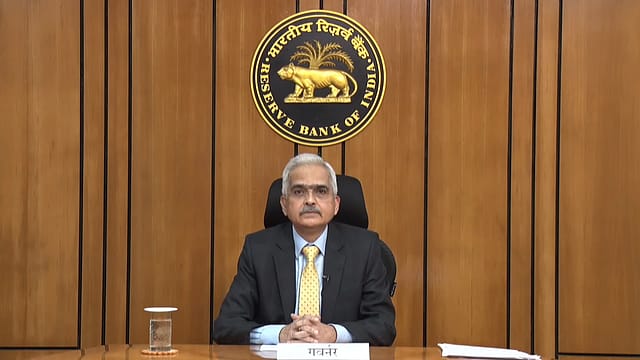'Project Nexus': RBI ties up with ASEAN for instant cross-border retail payments
ADVERTISEMENT

The Reserve Bank of India (RBI) and ASEAN (Association of Southeast Asian Nations) countries have decided to create a platform to facilitate instantaneous cross-border retail payments by interlinking domestic faster payment systems, the RBI says in its statement issued today.
Project Nexus, a multilateral international initiative to enable instant cross-border retail payments, will connect faster payment systems of four ASEAN countries, including Malaysia, the Philippines, Singapore, Thailand, and India. The Nexus platform is projected to play an important role in making retail cross-border payments "efficient, faster, and more cost-effective".
The RBI signed an agreement with ASEAN nations to be a part of Project Nexus, which has been conceptualised by the innovation hub of the Bank for International Settlements (BIS). Malaysia, Philippines, Singapore, Thailand, and India will also be the founding members and first-mover countries of the 'Project Nexus'.
The agreement was signed by the BIS and the central banks of the founding countries i.e., Bank Negara Malaysia (BNM), Bank of Thailand (BOT), Bangko Sentral ng Pilipinas (BSP), Monetary Authority of Singapore (MAS), and the RBI on June 30, 2024, in Basel, Switzerland. Indonesia, which has been involved from the early stages, continues to be involved as a special observer.
“The Reserve Bank of India (RBI) has been collaborating bilaterally with various countries to link India’s Fast Payments System (FPS) – the Unified Payments Interface (UPI), with their respective FPSs for cross-border Person to Person (P2P) and Person to Merchant (P2M) payments,” the RBI says.
It adds that while India and its partner countries can continue to benefit through such bilateral connectivity of fast payment systems, a multilateral approach will provide “further impetus” to its efforts in expanding the international reach of Indian payment systems. The RBI says the Nexus Platform – expected to go live by 2026 – can be extended to more countries in future.
What is Project Nexus?
Nexus is a model for connecting multiple national payment systems into a cross-border network that could enable international payments to happen in seconds.
Cross-border payments could be significantly improved by linking up domestic instant payment systems (IPSs) in multiple countries. Nexus provides a blueprint for doing this.
Nexus is a “behind-the-scenes” service that would be used by instant payment system operators (PSPs) and member banks or PSPs to route instant cross-border payments.
When a new country joins Nexus, existing members are automatically connected to that country and vice versa. This means the network can expand at near-zero marginal cost for existing members.
Nexus could significantly accelerate the growth of instant cross-border payments. To connect 60 IPS via Nexus would require 60 technical integration projects (one between each IPS and Nexus) compared with 1,770 bilateral initiatives. This reduces the work required by over 95%.
Benefits of interlinking instant payment systems through Nexus include speed, IPS process payments on a 24/7/365 basis, cost-effectiveness, access to non-bank PSPs, transparency and safety.
Nexus payments can be sent by individuals or businesses who currently use IPS to send domestic payments (so-called “retail” payments). It also supports the person-toperson (P2P), business-to-person and person-to-business payment use cases.